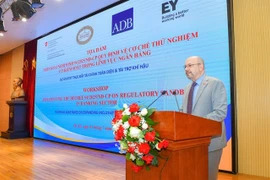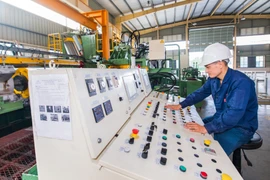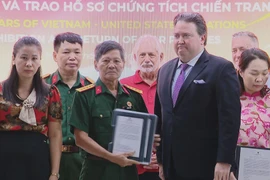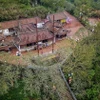Hanoi (VNA) – A series of thematic events within the framework of the Australia-Vietnam innovation partnership programme (Aus4Innovation) was held on July 16 – 17 in Hanoi by the National Agency for Science and Technology Information and Statistics under the Ministry of Science and Technology in collaboration with the Commonwealth Scientific and Industrial Research Organisation (CSIRO) of Australia.
A seminar on improving the effectiveness of science, technology and innovation policies through assessment and regulation mechanisms appropriate to practical situations, was the highlight of the series.
Addressing the seminar, Deputy Minister of Science and Technology Bui The Duy emphasised that in the context as Vietnam is promoting institutional reform, the development of policies based on an efficiency assessment mechanism is an urgent requirement to ensure focused investments.
The ministry has organised an assessment of the performance of research institutes, universities, and laboratories to reorganise the system of science and technology organisations and make focused and key investments.
According to Duy, Vietnam's science, technology and innovation ecosystem is designed and operated in the direction of evaluation and investment based on actual efficiency. In recent times, institutional innovation has recorded a fast pace, demonstrated by the completion of the Law on Science, Technology and Innovation in just three months.
In particular, the Ministry of Science and Technology has recently been assigned a new task of evaluating the effectiveness of science, technology, innovation and digital transformation activities nationwide. This would create a solid foundation for the ministry to effectively implement programmes, projects and policies, as well as assess the impact of science and technology on socio-economic growth, he said.
He appreciated the support of the Aus4Innovation programme, especially the introduction of new tools in policy evaluation such as progress monitoring methods and performance-based policy design, saying that these tools will be studied and applied immediately in the process of policy building and implementation in the coming time, thus creating real impacts, contributing at least double digits to GDP growth.
Renee Deschamps, Charge d'Affaires of the Australian Embassy in Vietnam, highlighted cooperation in science - technology and innovation as one of three important pillars in the Comprehensive Strategic Partnership between Vietnam and Australia, saying that the seminar demonstrates Vietnam's vision and aspiration in promoting comprehensive transformation through innovative policies and practices. She affirmed Australia’s commitment to accompanying Vietnam on this journey.
According to Deschamps, the framework project for assessing innovation policy pff Vietnam - a prominent component of Aus4Innovation programme, aims to equip Vietnamese policy makers with practical and evidence-based tools to develop and evaluate innovation policies with a comprehensive lens that not only promotes economic growth but also contributes to ensuring social equity and sustainable environmental management.
Experts and speakers gave opinions from different perspectives of state management agencies, universities, science - technology - innovation parks, high-tech zones, and enterprises on the changes and impacts of mechanisms and policies on innovation issued by the Vietnamese National Assembly in recent times such as Resolution 57, Resolution 68, and the Law on Science, Technology and Innovation.
Meanwhile, a training programme themed “Operating innovation policy: Designing and evaluating policy impact”, which was joined by many international experts from CSIRO and Aus4Innovation programme, focused on national innovation system, policy design thinking integrating social-environmental factors and regulatory impact assessment (RIA) tools./.
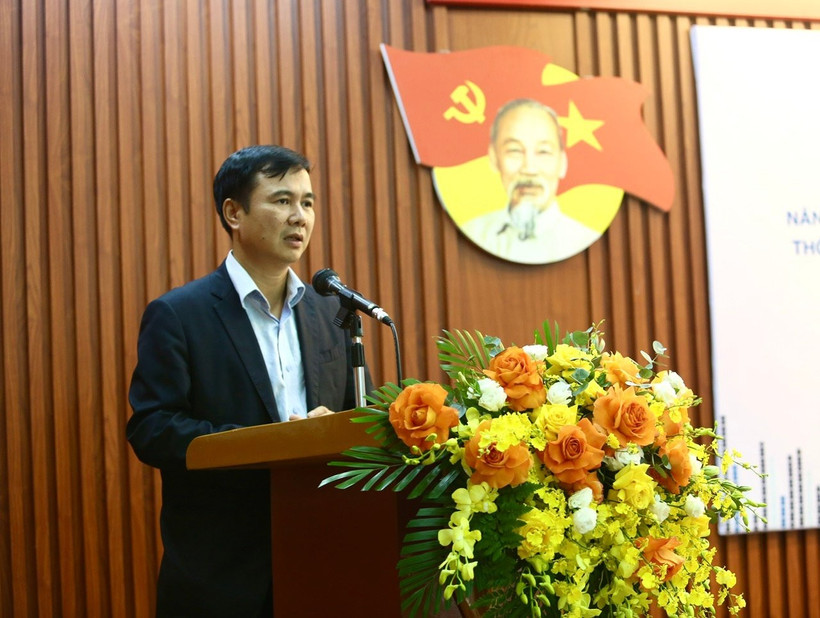
See more

Phu Quoc special zone advances toward smart urban centre
To serve both the two-tier local government operations and the APEC 2027 Leaders’ Week, An Giang is implementing a major tech infrastructure project on Phu Quoc Island, with a total investment of 500 billion VND (19.1 million USD).
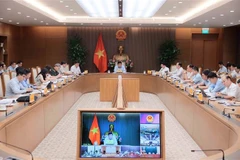
Deputy PM urges stronger push for smart city development
The Deputy PM applauded the task force’s preparation, stressing that smart urban development is not a choice but an inevitable trend for countries aiming for sustainable growth, improving the quality of life for people, and strengthening urban governance and operation.
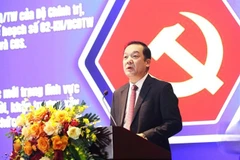
Over 75,000 digital technology enterprises operating stably in Vietnam
Vietnam ranked 44th out of 133 economies in the Global Innovation Index 2024, up two places from the previous year, and retained its leading position among lower middle-income countries.
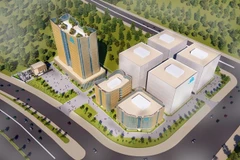
CMC Corporation to build 250 million USD data centre in HCM City
The centre will initially operate at a capacity of 30MW and is expected to scale up to 120MW, serving the huge computing needs for AI development and the digital economy sector of the city.

Hanoi to establish innovation centre as joint stock company to drive tech-led growth
The Hanoi Innovation Centre is expected to help concentrate resources and create breakthroughs for rapid and sustainable growth.
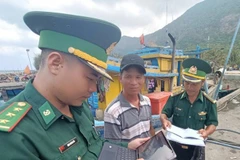
HCM City embraces digital technologies to curb IUU fishing
Across the city’s coastal communities, local authorities are adopting specialised digital applications to manage fishing vessels, monitor catch data, and support traceability efforts.
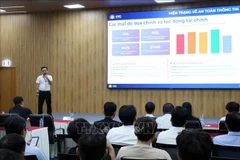
AI brings breakthrough opportunities, cybersecurity risks, experts warn
A report from Fortinet in June revealed that automated scanning attempts had surged to 36,000 per second, a 17% increase from the previous year. Alarmingly, 42% of these were account takeover attacks, and leaks involving 1.7 billion sets of credentials. In Vietnam, data from the National Cybersecurity Association showed that 659,000 cyberattacks were recorded in 2024, affecting approximately 46.15% of government agencies and enterprises.
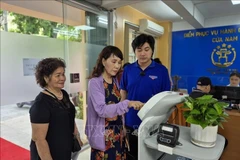
Hanoi’s Cua Nam ward introduces AI robot to support public services
The introduction of AI robots marks a key step in Hanoi’s efforts to streamline administrative processes, modernise public services, and build a more citizen-friendly government.
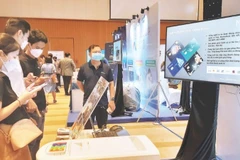
AI offers breakthrough opportunities for businesses
Under the Poliburo’s Resolution 57-NQ/TW on breakthroughs in science, technology, innovation, and national digital transformation, Vietnam aims to be among the top three ASEAN countries and the top 50 globally in AI development by 2030.
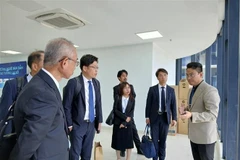
Da Nang offers favourable policies to boost startups, innovation
With the ambition to become a leading startup and innovation hub in Vietnam and Southeast Asia by 2030, Da Nang has implemented a range of incentives and actively promoted investment in its innovation ecosystem.
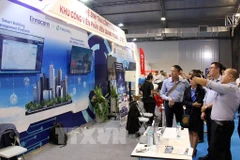
iTech Expo 2025 opens in HCM City with over 120 booths
Showcased technologies include AI, IoT, Big Data, drones, robotics, Holobox, and sector-specific solutions such as EdTech, AgriTech, FinTech, and cybersecurity. A dedicated zone for startups also forms part of the exhibition.
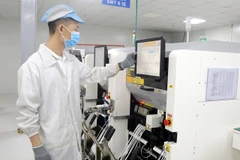
Vietnam to offer unprecedented incentives for digital tech companies
According to the Law on Digital Technology Industry, the incentives include full corporate income tax exemption for the first two years and 50 % reduction in the four following years, as well as land rent waivers for three years.
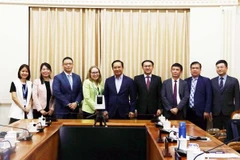
HCM City, Intel cooperate in training AI human resources
Kenneth Tse, General Director of Intel Vietnam, noted that in nearly 20 years of operations in the country, Intel Vietnam has exported over 4 billion products, contributing more than 100 billion USD to Vietnam’s export revenue.
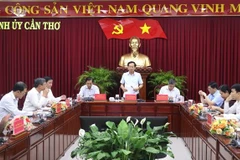
Can Tho, GenAI Fund team up for AI-driven transformation
The fund plans to assist Can Tho through a comprehensive set of initiatives such as the “Digital Transformation for All” programme to promote digital literacy; AI training for public officials and businesses; startup incubation and co-investment; and financial support for AI research and innovation. Additional support includes providing free working spaces for AI developers and formulating a region-specific AI strategy.
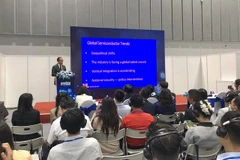
Vietnam, one of most promising players on global semiconductor landscape
Amid growing global demand, fragile supply chains and intensifying geopolitical conflicts, Vietnam is rapidly emerging as one of the most promising players in the global semiconductor landscape, a seminar heard in Ho Chi Minh City on July 2.
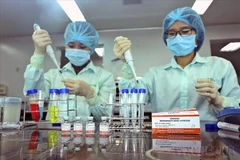
Vietnam sets out incentives for PPPs in sci-tech development
Key areas eligible for PPPs include high and strategic technologies; infrastructure for the research, development, and application of high and strategic technologies; and digital infrastructure supporting the digital economy, digital society, and digital government.
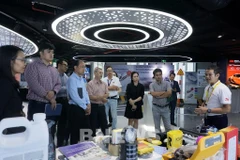
Advanced technology solutions ready for North–South high-speed railway project
During the visit, the parties exchanged ideas on high-tech material solutions and technologies that could be applied to national strategic transport infrastructure projects, particularly the North–South high-speed railway project.
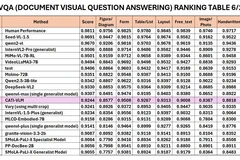
Vietnam’s new AI model masters complex document analysis
CATI-VLM is an AI model for document reading that has already claimed a spot among the world’s elite, ranking first in Vietnam and among the top 12 globally in the Document Visual Question Answering (DocVQA) category of the Robust Reading Competition (RRC) in June 2025.
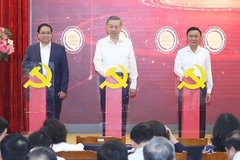
Party chief calls for stronger efforts in innovation, digital transformation
General Secretary Lam also emphasised the need to immediately issue policies to attract and retain high-level domestic and overseas talents, particularly in critical fields like AI, semiconductors, and advanced materials.
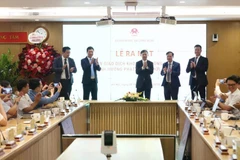
Vietnam science-technology exchange platform launched
The Ministry of Science and Technology (MoST) on June 30 officially launched the Vietnam Science and Technology Exchange, and outlined its future development direction.
